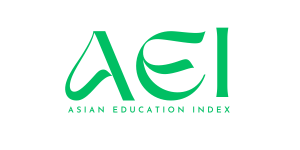Addressing The Challenges Faced by Stakeholders in Protecting the Rights of Women with Special Needs in Cameroon
Keywords:
Women with special needs, legislator, challenges, Protection, RightsAbstract
Over the past years, protection of the rights of the vulnerable such as women with special needs has been the concern of most international human rights treaties and institutions. In 2008, the UN adopted the Convention on the Rights of Persons with Disability; mandating state parties to take positive measures to ensure proper and effective protection of the rights of the PWSNs including women. Cameroon being a party to this treaty hided to the call of the UN put in place legal, institutional and policy measures for effective enforcement of the rights of these persons. Despite the measures taken by the state of Cameroon, it is found that women with special needs still experience violation of their rights due to the fact that the stakeholders charged with the responsibility to protect WWSNs are faced with various challenges which hinder effect enforcement and implementation of the laws.
References
Abdallah P., (2014) “Persons with Disability’s Right to Work in Africa: a Comparative Study of Employment and Disability Laws, Policies and Relative Institutional Mechanisms of Tanzania and Selected African States”, Published PhD Thesis, Faculty of Humanities, Social Sciences, and Theology, Frederich-Alexander-University.
Cowen D, (2018)., “Advancing the Rights of Rural Women with Disabilities in Zimbabwe” published PhD Thesis
Shey P. F, (2018), ‘Inclusive Education in Cameroon: Students’ with Disabilities Perceptions on Inclusive Practices at the University of Buea, Cameroon’, Greener Journal of Education and Training Studies, vol. 4, no. 1, pp. 19-28.
Maxwell P.O et al., (2016), ‘Lives of Persons with Disabilities in Cameroon after CRPD: Voices of persons with disabilities in Buea Municipality in Cameroon’, International Journal on Disability and Human Development , pp. 21-28.
Audrey C, (2011), ‘Human Rights protection for Vulnerable and Disadvantaged Groups: The contributions of the U.N Committee on Economic, Social and Cultural Rights’, Human Rights Quarterly, pp 220 230.
Riddell S et al. The development of direct payments: implications for social justice. Social Policy and Society, 2005, 4:75-85.
Mitchell, N. J. and Mc Cormick, J. M. ‘Economic and Political Explanations of Human Rights Violations, World Politics, Vol. 40, No. 4, 1988, at p. 479. However, according to the authors, “poor countries do not necessarily violate their citizens’ human rights; among those that do, the extent varies.
Katsui, H., “Human Rights Based Approach to Disability in Development in Uganda: A Way to Fill the Gap between Political and Social Spaces?”, Scandinavian Journal of Disability Research, 10(4), 2008, pp.227–236.
Wapling L & Dounie B, Beyond Charity: a donor’s funding in the era of the UN Convention on the Rights of Persons with Special Needs. Boston: Disability Rights Fund, 2012. pp. 21–22.
Shakespeare, T., ‘Disability Rights and Wrongs’, Sociology of Health and Illness, Vol 31 issue 2, 2006, PP. 303–304.
Wapling L & Dounie B, Beyond Charity: a donor’s funding in the era of the UN Convention on the Rights of Persons with Special Needs. Boston: Disability Rights Fund, 2012, pp. 21–22.
Charlton J. Nothing about us without us: disability oppression and empowerment. Berkeley and Los Angeles, University of California Press, 2000.
The 2006 United Nations Convention on the Rights of Person with Disability and Optional Protocol.
CEPD ‘Report on The Campaign Launch, on Improving Attitudes towards Persons with disability in Ghana’, http://www.cepdghana.org/content/view/44/71/1/0/, 2013, accessed on the 23rd of May 2021.
World Health Organization. (WHO). 2011. World report on disability. Geneva: WHO.
Law No. 2010/002 of 13 April 2010 Protecting persons with Disabilities.
World Health Organization and the World Bank, World Report on Disability, 2011.
Downloads
Published
Issue
Section
License

This work is licensed under a Creative Commons Attribution-NonCommercial 4.0 International License.
User Rights
Under the Creative Commons Attribution-NonCommercial 4.0 International (CC-BY-NC), the author (s) and users are free to share (copy, distribute and transmit the contribution).
Rights of Authors
Authors retain the following rights:
1. Copyright and other proprietary rights relating to the article, such as patent rights,
2. the right to use the substance of the article in future works, including lectures and books,
3. the right to reproduce the article for own purposes, provided the copies are not offered for sale,
4. the right to self-archive the article.














